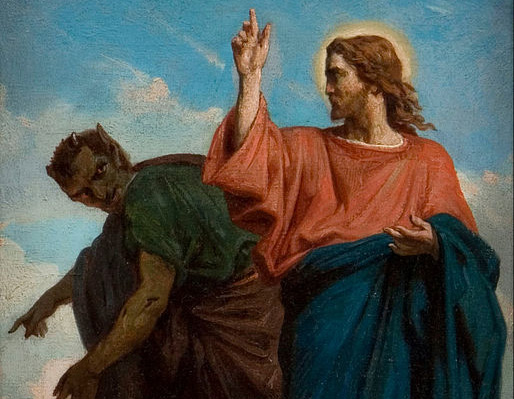 |
| The greatest financial scam ever perpetuated on the American public. |
Billions of dollars thrown away
Americans spent $70 billion on lottery games in 2014. That's more than $300 per adult in the 43 states where lotteries are legal. In fact, Americans spent more on lottery tickets that year than they did on sporting events, movie tickets, books, video games, and recorded music.Americans spent more than $73 billion buying lottery tickets in 2016, the latest year for which I could find figures. The odds of a ticket winning the PowerBall's jackpot is one in 292 million. Quick, how many people do you know personally who have been struck by lightning twice (even if the second time killed them)?
Your odds of being struck by lightning this year are 1 in 960,000. In your lifetime those odds drop to about 1 in 12,000. Your odds of being struck by lightning twice in your lifetime are 1 in 9 million, which is still a higher chance than winning the Powerball.
What about getting struck by lightning while drowning? Those odds are 1 in 183 million which 63 percent higher than hitting the Powerball.And the odds against winning the Mega-Millions jackpot are 302 million to one. Yeah, good luck with that. You are 159 times more likely to be killed by a falling meteorite than winning Mega-Millions.
Who buys lottery tickets? Well, this kind of guy (men are far more likely to buy tickets than women):
But ticket buyers have been studied probably more than any other customer base in the country. Who buys? The answer reveals why for many years lottery critics have called lotteries the Sheriff of Nottingham plan, robbing from the poor and giving to the rich. By far, lower income and net worth persons buy more lottery tickets and by far the middle and upper classes are more likely to use non-payout benefits, such as lottery-sales-funded college scholarships. Lotteries are literally a wealth-transfer program from the poor to the relatively wealthy.
An even broader look at the dynamics between demographics and lottery purchases is the subject of a 2012 study from researchers at the University of Buffalo, also published in the Journal of Gambling Studies. That study, titled “Gambling on the Lottery: Sociodemographic Correlates Across the Lifespan,” analyzes telephone survey data from a random sampling of nearly 5,000 Americans; the data were compiled from two surveys conducted at different times, one with persons ages 14-21 (though 18 is technically the legal age to play) and the other survey with those 18 and older. The survey asked respondents about all forms of lottery play in the past 12 months, “including instant scratch tickets, daily numbers or Lotto….”
The study’s findings include:
- “With regard to lottery play for respondents of various racial/ethnic groups, non-Hispanic whites and Native Americans had the highest proportion of gambling on the lottery (51% for each group); however, with regard to mean levels of gambling on the lottery, blacks and Native Americans had the highest averages (20.6 and 25 days, respectively).”
- Those in the lowest fifth in terms of socioeconomic status (SES) had the “highest rate of lottery gambling (61%) and the highest mean level of days gambled in the past year (26.1 days).” Moreover, there were “very few observed differences in lottery gambling for those in the three upper SES groups — 42–43% gambled on the lottery and the three upper groups averaged about 10 days of gambling on the lottery in the past year.”
- The data show that “blacks have lower rates of gambling on the lottery than whites, but blacks have a higher average number of days gambled on the lottery than whites. However, in the analysis containing all of the sociodemographic variables, including socioeconomic status and neighborhood disadvantage, black and Hispanic groups are not significantly different from the white reference group in number of days gambled on the lottery.”
- The tendency to play the lottery in a given year increases for people in their twenties and thirties — the proportion hovers around 70% in those age groups. It dips slightly to about two-thirds for people in their forties, fifties and sixties; and then declines to 45% for people 70 and older.
See also this article in The Atlantic. When the PowerBall lottery first went before the voters here in Tennessee, I was a member of the anti-lottery task force (we lost) and was cited in the post-referendum book, Lottery Wars: Case Studies in Bible Belt Politics, 1986-2005.
- Men play more frequently than women do — 18.7 days over the past year for men, versus 11.3 for females.
Lotteries are here to stay, that's for sure. But it is simply impossible to find the slightest shred of social good in them.





